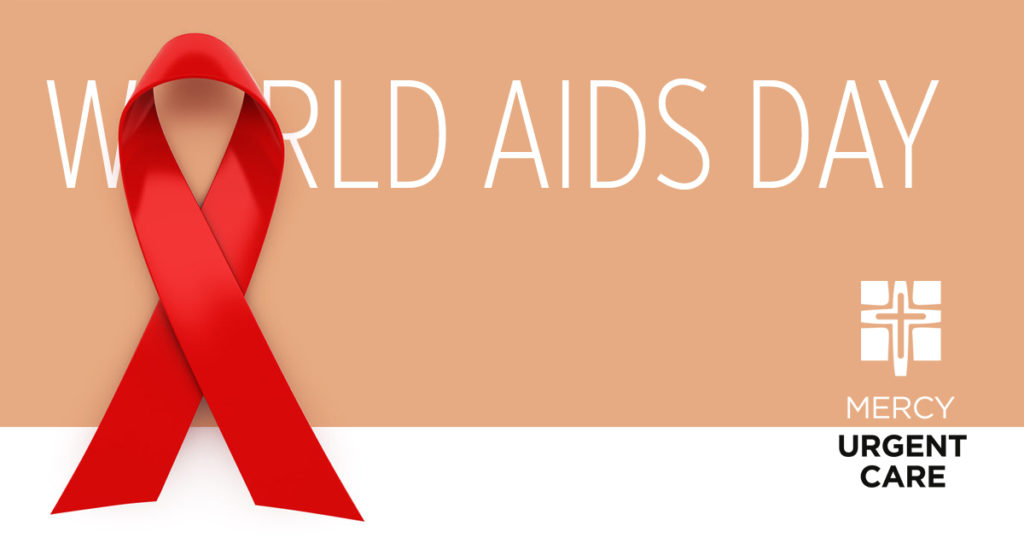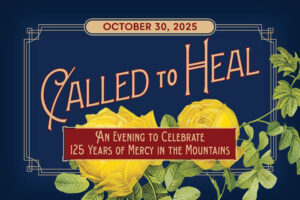
Mercy Urgent Care is seeing red — red ribbons, that is.
This Saturday, December 1, Mercy Urgent Care stands united with red ribbon-wearers around the globe in honor of World AIDS Day. Founded in 1988 as the first-ever international health day, World AIDS Day raises awareness for the fight against HIV, shows support for those living with HIV and commemorates those who have died from an AIDS-related illness.
Nearly 37 million people around the globe are living with HIV — and more than 35 million people have died of HIV or AIDS, making it one of the most destructive pandemics in history.
For 30 years, the annual health day has helped keep funding and support for AIDS research in the forefront of both the public mind and the government agenda. On Saturday, Mercy wants to show solidarity with those living with HIV and to challenge the stigma and prejudice surrounding AIDS.
As a health care provider, Mercy Urgent Care knows the importance of diagnosis (no matter the illness) — and many people living with HIV are unaware that they’ve contracted the disease. According to the CDC, of the 40,000 people diagnosed with HIV in 2015, one in two had been living with HIV for three years or more, one in four had been living with HIV for seven years or more — and one in five cases of HIV had already advanced to AIDS by the time of diagnosis. The only way to know is to get tested, and early diagnoses are key to theprolonged health of individuals and to stopping the transmission of disease.
On the outskirts of Charlotte, in Belmont, the Sisters of Mercy-sponsored ministry House of Mercy will be hosting a World AIDS Day reception at its residence from 5:45-6:15 p.m. on Tuesday, Dec. 4. The House of Mercy opened in 1991 in response to the AIDS epidemic in North Carolina — providing a home and specialized care for people living with AIDS. During Tuesday’s reception, the House of Mercy will honor and remember its past residents and share their residents’ stories of success.
Join Mercy by raising awareness (or even funding) to help end new transmissions, stigma and the inequalities faced by people living with HIV.

